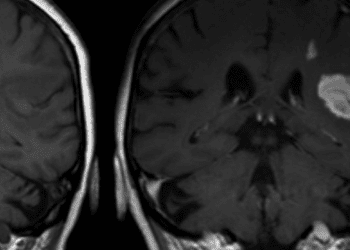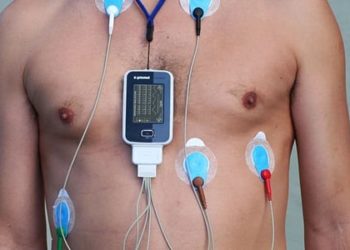High risk of vitamin D deficiency in breast-fed infants receiving vitamin D supplementation
Image: CC/S.Brools – Vitamin D
Key study points:
Primer: Numerous lines of evidence implicate Vitamin D’s importance in human growth and health maintenance. It not only plays a major role in the absorption of dietary calcium and phosphorous (without Vitamin D, only 10-15% of calcium and 60% of phosphorous ingested would be brought into the body for use in bone metabolism), but it has also been suggested that Vitamin D may be an important immunomodulator and anti-cancer agent. Yet, despite this, Vitamin D deficiency still affects over 1 billion people worldwide. Deficiency is defined as a 25-Hydroxy Vitamin D {25(OH)D) level of less than 50 nmol/L (20ng/mL). Particularly worrisome is Vitamin D deficiency in infants, where low levels of 25(OH)D have been associated with rickets, growth retardation, lethargy, and seizure. While breast milk is an excellent source of nutrients for the growing infant, studies have shown that Vitamin D levels in breast milk are low (20-60 IU) even in mothers with adequate serum levels. Thus, the American Academy of Pediatrics has recommended that breast fed infants be supplemented with 400 IU/day of vitamin D beginning in the first few days of life throughout childhood. However, recent research has suggested that vitamin D deficiencies may arise even in supplemented infants. Thus, the authors of this article sought to investigate vitamin D status in exclusively breastfed infants receiving vitamin D supplementation.
Background reading:
This [cross-sectional] study: 143 exclusively breast fed infants receiving at least 4 days a week of Vitamin D supplementation since before 15 days of life were studied at two health care centers in Izmur, Turkey. Their mothers were asked regarding their demographic characteristics, including socioeconomic status and education history, dressing habits, dairy and vitamin intake during pregnancy, and vitamin D supplementation of their infants. Further, blood specimens were taken from each infant and analyzed for 25(OH)D, calcium, phosphorous, alkaline phosphatase, and parathyroid hormone levels. Vitamin D deficiency was defined as serum 25(OH)D levels below 50 nmol/L (20 ng/mL).
Of the total 143 subjects, 40 (28%) were vitamin D deficient despite receiving 400 IU of vitamin D per day for 4 or more days per week. 113 (79%) of the infants studied received daily vitamin D supplementation and this was associated with sufficient serum vitamin D levels (75.2+/-27.3), while those receiving supplementation for 4-6 days of the week demonstrated deficient serum levels (42.1+/-19.7). Further, lower vitamin D levels were associated with:
- Winter season (serum 25(OH)D = 52.2+/-20.6) compared to summer (81.9+/-28.5)
- Maternal dressing habits with high skin coverage (serum 25(OH)D = 61.4+/-27.8) compared to low skin coverage (75.5+/-28.9)
- Insufficient maternal consumption of dairy during pregnancy (serum 25(OH)D = 61.4+/-26.3) compared to sufficient consumption (73.6+/-30.3)
- 0-8 years of maternal education (serum 25(OH)D = 64.8+/-28.1) compared to 9 or more years (85.2+/-28.9)
In sum: This study found that Vitamin D deficiency was high even in infants supplemented with Vitamin D for 4+ days a week and this deficiency was also independently associated with maternal factors such as dressing style, dairy consumption during pregnancy, and education level. These results suggest that adjustments need to be made regarding the recommended doses of vitamin D supplementation in exclusively breastfed infants, particularly during the winter months.
This study has several limitations. First, maternal 25(OH) levels were not studied. Previous research has suggested that maternal serum 25(OH)D can affect Vitamin D levels in breast fed infants. Indeed, studies have shown high doses of Vitamin D supplementation (4000 IU) in mothers can allow adequate provision of Vitamin D to infants through breast milk. Second, this study looked at infants living in one particular region with a temperate sunny climate year round who with mothers who had been instructed about the use of Vitamin D, thus this study may not be generalizable to other populations.
Click to read the study in Pediatrics
By MK
© 2012 2minutemedicine.com. All rights reserved. No works may be reproduced without written consent from 2minutemedicine.com. DISCLAIMER: Posts are not medical advice and are not intended as such. Please see a healthcare professional if you seek medical advice.




